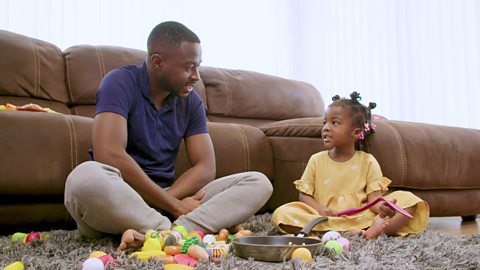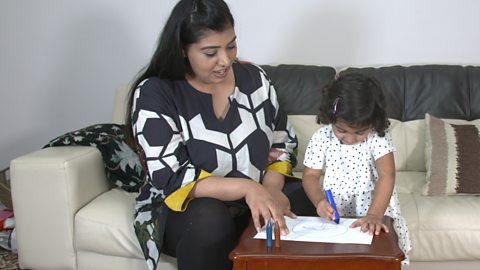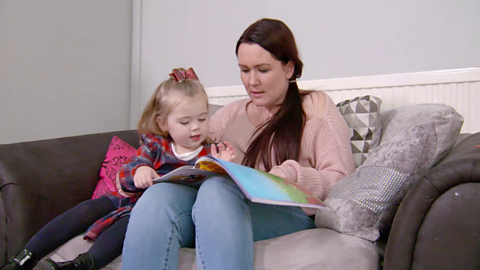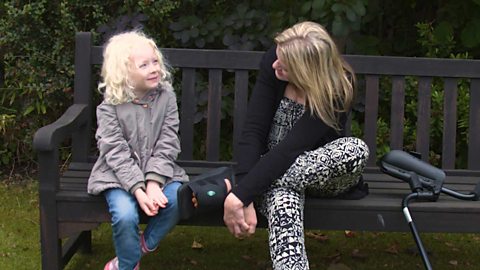Life is rarely straightforward and we're all dealing with our own individual challenges.
Whether it's moving house or school or dealing with divorce or bereavement, lots of things can disrupt your normal routines.
And youâre not the only one to struggle with this uncertainty and change. From a very young age, your baby or child will realise their day-to-day life is suddenly different.
Dr Elizabeth Rapa from says: âPeople underestimate what little children understand. Even from the first few months of life, babies are tuned in to their parents cues and notice if they seem distracted or have their attention somewhere else.â
Here are Elizabethâs tips for helping your child cope with uncertainty and change in their livesâŠ
1. Talk about whatâs happening
Maybe youâve switched to a new nursery for your child. Or perhaps a family member is poorly, so you canât visit granny like you normally do. Even little changes to your family routine can unsettle your child.
âChildren are very aware of who is looking after them, what is happening and any changes to that," says Elizabeth.
Even babies are aware of what is coming next.
"So they are very good at picking up when something is different in the household or their routine has changed."
âExplain what is happening in an age-appropriate way, even before you think they might understand. And give words to what they are experiencing. You could say, âWe canât see Granny at the moment as we donât want her to get sick and we feel sad.â If we donât give children explanations they start to think itâs something they have done.â

2. Have a routine
Big life changes like splitting up from a partner or moving house can be really disruptive for all of you. And that can make your little one feel anxious about what is coming next. So Elizabeth suggests concentrating on having a routine and structure.
Knowing what is happening each day reduces your childâs anxiety. Being predictable is a good thing.
"Children tend to benchmark their day by snacks and mealtimes so use those when explaining what you are doing.
âSome children like picture charts. Using pictures of someone eating breakfast, a toothbrush, a school bag and so on gives children a sense of what is happening. It helps them understand that things might have changed around them, but they still have that predictable structure.â
If youâve broken up with your partner, Elizabeth suggests using a calendar so your child can see exactly when they are seeing each parent.
3. Understand their reactions
When something big happens in your life, it can sometimes be hard to face how youâre feeling. But for your child, they wonât know how they are feeling as all their emotions are new.
âThe first thing to do is normalise your childâs reaction," says Elizabeth. "They may be more clingy or having tantrums, but they are allowed to because their lives have been turned upside down. When you realise that as a parent, it makes their reactions easier to handle and understand.â

4. Draw how they are feeling
Creative activities can help your child understand their emotions.
âGet a big piece of paper and draw round your child. Then ask them to write or draw arrows showing how their bodies change when they feel different things. It might be, âWhen I'm nervous my tummy feels funnyâ, or âWhen I'm angry I feel hot.â"
Help your child unpick how they feel and what they can do to help with those strong emotions.
"You could say: âWhen I feel sad I find going outside cheers me up.â By doing this, youâre giving your child the skill to know how to make themselves feel better.â
5. Have family activities
Help your child feel connected, even when so much change is going on around them, through different activities.
This could be looking at books together, playing games or â if your child is older â making a graffiti picture using words to describe how they are feeling.
Elizabeth says: âThere are lots of books for young children that normalise change, like starting nursery or going to the dentist. If your child is older, you could talk about how the characters might be feeling. Ask your child to look at their faces and what they might be thinking. Thatâs a good way to start bringing in words to describe feelings. You could also play a miming game and ask your child to act out a feeling and you have to guess what it is.â

6. Make a feelings chart
Another great way to help your child deal with any change in their lives is by making a feelings chart. Every day, they could put a sticker on the chart to show how they are feeling.
âAs a parent we always ask, âAre you hungry?â, âAre you tired?â. In times of uncertainty, itâs also important to ask your child how they are feeling. If your child is a bit older, you could ask them to say on a scale of 0 to 3 how they feel about what is happening. By doing this, youâre letting them know itâs okay to talk about how they are feeling."
Itâs also good to let them know itâs OK to be worried, but youâre in it together. That can be such a relief to children.
7. Give your child some control
When so much is happening in your life that you canât control, putting your child in charge of parts of their day can really help. âThis could be as simple as letting them decide if they want a sandwich or a wrap for lunch,â says Elizabeth. âBy giving them options youâre letting them feel they do have a say and they do have a chance to decide what is happening.â
Further information
offer help and support for parents who may be worried about their children's mental health.
is a children's mental health charity that works with children, parents and teachers in UK schools.
You could also visit the ±«Óătv Action Line page to find organisations that can offer more information and advice.






